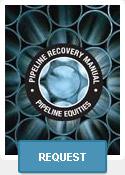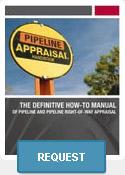A pipeline easement agreement provides a company with the authority to utilize a stretch of land to build, uphold, and manage pipelines.
Purchasing a property that includes a pipeline easement entails specific legal and practical considerations. Legal counsel can assist you in making a well-informed decision about the pipeline easement on your property – safeguarding the property and its associated rights. If you have future ideas about the property’s usage, you’ll want to ensure that those ideas are allowed within the constraints of the easement agreement before you sign.
The pipeline easement agreement makes sure that the pipeline company has the right to access and use the easement for pipeline-related activities and you retain ownership of the land subject to its outlined restrictions. You could continue using your property for farming or other purposes.
Landowners get compensated for granting a pipeline easement on their land. It can be transferred to a new landowner if requested. The size of the easement, the nature of the pipeline, prevailing market conditions, and local regulations determine the payouts either a lump sum payment, ongoing payments, or a hybrid of both options.
Determine how the pipeline easement might affect your use of the property. Easements can vary in size and scope, so you need to know which areas are affected and what activities are restricted. You’ll want to do your due diligence on the pipeline itself to better understand the nature of the pipeline and its purpose. Is it an active pipeline? What materials does it transport? Is it part of a larger network? This information can help you assess potential risks and benefits.
Pipelines can have environmental impacts, and pipeline companies are often required to adhere to environmental regulations and best practices during the construction and operation of pipelines. Easement agreements may also include provisions related to land restoration after construction.
You’ll want to assess the impact on your property value. Properties with easements might be less attractive to some buyers due to restrictions on land use. Others may like what your easement agreement offers. Consult with specialized real estate professionals to estimate any potential impact on the property’s resale value. A good contract will clearly define who is responsible for maintaining the pipeline and help you understand the liability implications in case of accidents or issues related to the pipeline.
Easements might restrict your ability to make changes to the land that could impact the pipeline’s integrity or the environment. Ensure you are aware of any environmental regulations or restrictions related to the easement. Think about speaking with insurance professionals to understand if additional coverage is needed due to the presence of the pipeline. This might include liability coverage in case of accidents related to the pipeline. If you haven’t yet purchased the property, you may have some room for negotiation with the seller regarding the terms of the easement. This could include seeking compensation for the restrictions on land use.
Easement agreements may specify conditions under which the easement can be terminated or the pipeline removed, possibly due to factors such as changes in technology, changes in the need for the pipeline, or the end of the pipeline’s useful life.
Contact us about your pipeline easement situation!














